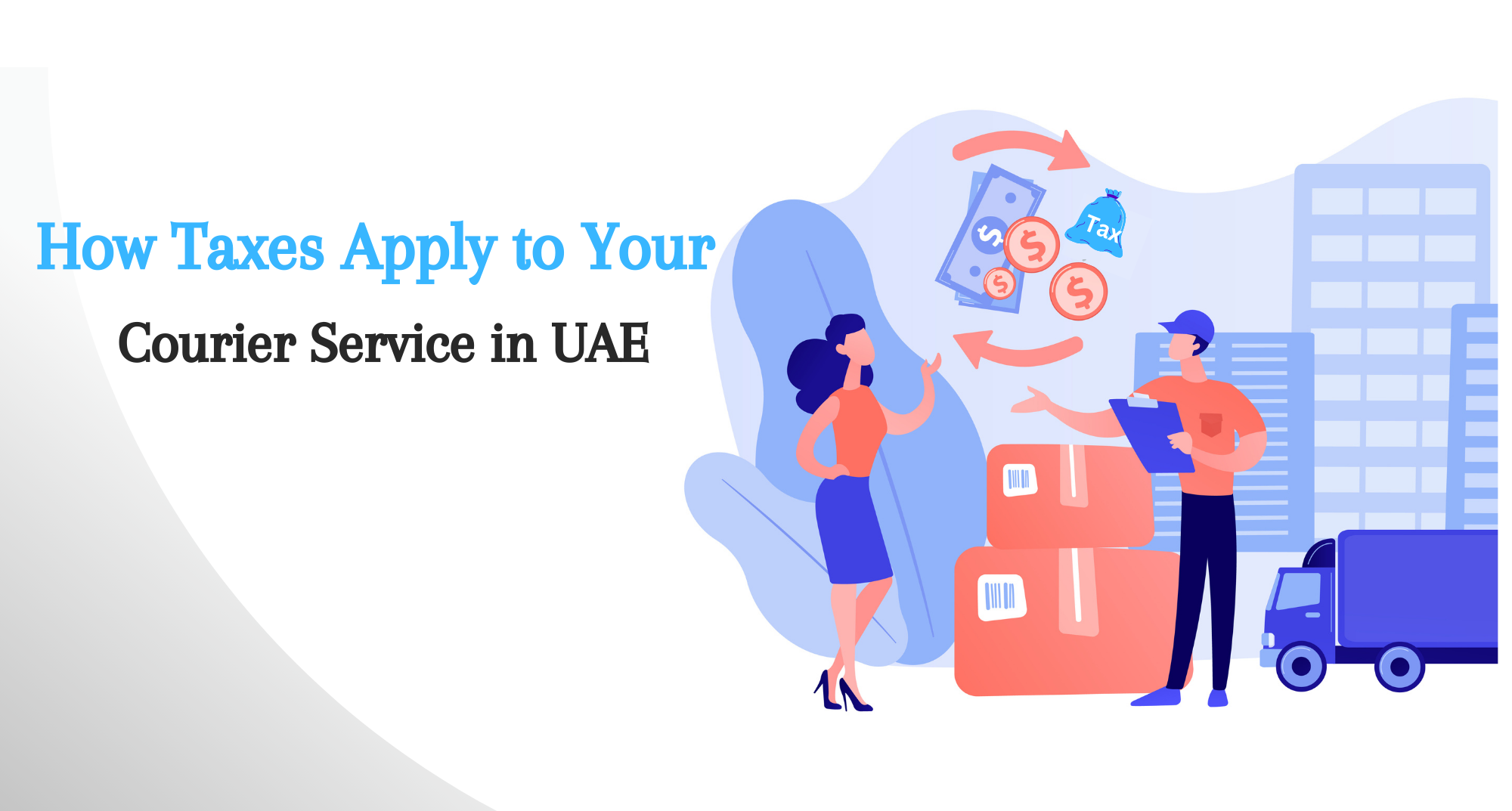How Taxes Apply to Your Courier Service in UAE
Are you concerned about a delivery service tax in UAE? Then, it's crucial that you learn the ins and outs of business taxes. While the intricacies of tax law might be intimidating, arming yourself with even a rudimentary understanding will help you avoid fines and make sure you pay your fair share. Everything from the definition of a delivery service in UAE to tax registration will be covered in this essay. It's time to buckle up and gain some education.
Are you required to pay taxes?
When using courier services in UAE, it's important to understand the potential charges and fees involved. One consideration is customs duties, which are imposed by the UAE government on certain imported goods based on their value and type. It's possible that your shipment may be subject to customs duties, which the courier service will handle on your behalf and collect upon delivery. These duties can vary, so it's advisable to inquire about them beforehand to avoid any surprises.
Additionally, it's essential to be aware of any additional fees that the courier service may charge. These fees can include handling fees, packaging fees, or other surcharges. Understanding these potential charges upfront allows you to plan and budget effectively for your shipping needs. To ensure transparency, it's recommended to inquire about customs duties and additional fees with the courier service provider before utilizing their services. This way, you can make informed decisions and have a clear understanding of the total costs involved in using courier services in the UAE.
What type of taxes do you need to pay?
When it comes to running a delivery service in UAE, taxes are something you can't ignore. Understanding what type of taxes you need to pay is crucial for ensuring compliance with local laws and regulations. Several tax types are listed below:

1) VAT, or Value Added Tax
The Value Added Tax (VAT) is a major form of taxation for UAE courier services. Value-added tax (VAT) is a consumption tax levied on products and services at every point along the supply chain. According to Value Added Tax laws, delivery services in UAE are a type of taxable supply. If your annual revenue as a courier service provider exceeds AED 375,000, the threshold at which you must register for VAT in UAE is in effect. Once you become VAT-registered, you must include the VAT rate (currently 5% in the UAE) in the prices you list for your services. You can get back the value-added tax you've already spent on things like gas, car repairs, and office supplies. However, regular VAT returns must be filed with the FTA of UAE, and correct records must be kept.
2) Custom Duty
E-commerce business delivery services in UAE may incur customs taxes in addition to value-added tax. When shipping internationally, you may be required to pay customs duties on specific items. You, as the courier service provider, must see to it that all customs formalities are completed and all duties are paid. To avoid unnecessary delays and fines, it is crucial to have a firm grasp of the customs regulations.
3) Corporate Income Tax
United Arab Emirates does not have a national business income tax. But in some tax-free zones, enterprises are nevertheless subject to local taxation. If you are running a courier service inside a free zone, you should check with the local authorities to learn more about the tax regulations that apply to your business.
4) Social Security Contribution
Employer contributions to social security are voluntary in UAE. However, it's crucial to meet the standards established by the UAE Labor Law, such as offering health insurance and contributing to retirement plans for workers. Providing attractive benefits to your employees in the highly competitive industry of delivery service in UAE will do wonders for both your company's reputation and its ability to attract and retain top talent.
Conclusion
Taxes are an essential aspect of any business operation in UAE, including courier services. Companies must comply with all tax regulations and file their returns on time. Understanding how taxes apply to your e-commerce Businesses delivery services are crucial for making informed decisions that can benefit your business in the long run. By knowing the applicable tax rates and exemptions, you can better plan your finances and avoid penalties for non-compliance. The government authorities have made navigating these processes easier by introducing online portals where businesses can register and pay their dues seamlessly. While navigating the complex world of taxes may seem daunting initially, remember that seeking professional help or consulting with a tax expert could make things easier. Stay informed about new regulations and updates so you can handle any changes. By doing so, you'll be able to focus on providing top-notch courier services while staying compliant with all rules and regulations.




